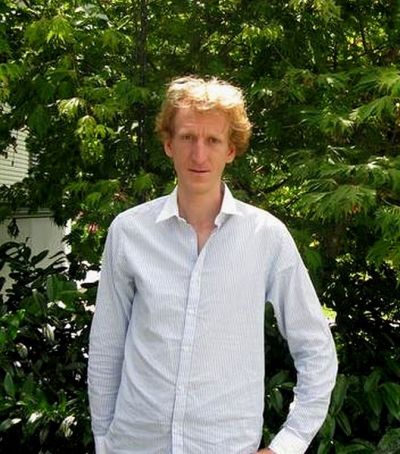If you come
across Prof. Green at the Oxford University (UK), chances are he is
working hard on his ERC five-year research grant on 'Approximate
Algebraic Structure' (AAS). In this project, he looks at what happens
when the axioms used to define various mathematical objects such as
groups (known as a set of elements and an operation satisfying certain
conditions) or polynomials (expressions consisting of variables and
coefficients), are weakened and give birth to so-called ‘approximate’
variants of these objects. This problem, while obscure to the profane,
is key to major mathematical conundrums such as counting configurations
of prime numbers, and it has diverse applications. For Prof. Green
however, the problem is of interest in its own right – just like any
mathematical brainteaser he faced through the course of his career.
The greatest form of praise
‘I am a pure mathematician and I am motivated by mathematical
questions which are natural and beautiful, rather than by specific
applications. History has repeatedly shown that mathematics created this
way can later have extremely wide ranging and important applications,
but I don't believe most pure mathematicians are motivated by this
thought. Within pure mathematics, I am more of a problem solver than a
theory builder, although a fairly large theory has arisen from the joint
work I have done with Terence Tao and others,’ he explains.
Terence Tao is a long time collaborator of Prof Green and was recently granted with the 2014 Breakthrough Prize
– sponsored by big industrials and a certain Mark Zuckerberg – for his
work. The ultimate reward? ‘I was very happy for Terence. I suppose one
of the key aims of that prize is to raise the profile of the best
mathematicians amongst a wider audience. Hopefully, the mathematics
itself – rather than merely the personality of the winners – will get a
raised profile too’.
Ben Green is one of those mathematicians for whom the
acknowledgement of his work is the most precious reward. He considers
his upcoming plenary lecture at the ICM, taking place on 19 August, as a
great honour. Which it certainly is if you consider that the list of
previous plenary speakers includes some of the most famous
mathematicians of the 20th century.
‘Someone once suggested to me that mathematicians usually work for
the begrudging approbation of a handful of fellow mathematicians. There
is some truth in that – having something I do considered favourably by
other mathematicians is the most meaningful form of praise for me,’
Prof. Green says.
Passing the torch
There is, however, another form of achievement that moves the
eminent mathematician: drawing interest in math and helping young
mathematicians break through. He has given various public lectures to a
general audience and his ERC ‘AAS’ grant, for instance, is mostly
dedicated to funding post-doctorates. ‘Grants from organisations such as
the ERC allow us to attract very high-quality people to come and work
in Europe,’ Prof. Green says.
With ‘AAS’, the mathematician attracted an entire team in Oxford and
enjoys the benefits that exchanges with peers bring in terms of rapid
progress. Some of these team members have already been very successful
in their short careers.
‘Our students are competitive with the best from anywhere and
perhaps our education system instills in them attributes such as
independence and creativity, which might not be so highly emphasised
everywhere in the world and which certainly cannot be easily measured,’
Prof. Green notes. Whilst some policy-makers tend to regret students’
‘low achievement’ in mathematics, he thinks the field has a promising
future provided that it rises to some challenges.
‘Mathematics already has a fairly high profile in the media, and it
is encouraging to see a variety of well-written articles and lectures
for a general audience out there. However, we are still a long way from a
situation in which the role of mathematics as fundamental to most of
modern life is universally appreciated. Large sections of the media and
public still think of mathematicians as “boffins” working in total
obscurity on things they have no hope of understanding the first thing
about,’ Prof. Green deplores.
A first way to improve things could be, according to him, to value
teachers more highly – pay them more, remove bureaucratic obstacles to
them doing the essential part of their job, and empower them to choose
their curriculum. Ultimately, this should enable them to focus on what
really matters: creating vocations and supporting talents.
For the latter, Prof. Green also has a piece of advice: ‘Work hard!’
he insists. ‘Try to get stuck into a problem as early as possible in
your research career, rather than spending years reading all the
background. It needn't be (in fact, it shouldn't be) a particularly
well-known question, but it should be something you find interesting.’
Project details
Research area: Mathematics (PE1)
Principal investigator: Ben Green
Host institution: Oxford University (United Kingdom)
ERC project: ‘Approximate algebraic structure and applications’ (AAS)
ERC call: Starting grant 2011
ERC funding: EUR1.88 million for five years
Researcher’s website
 EN
EN  CS
CS DE
DE ES
ES FR
FR HU
HU IT
IT PL
PL PT
PT РУ
РУ SK
SK TR
TR УК
УК AR
AR 中文
中文







